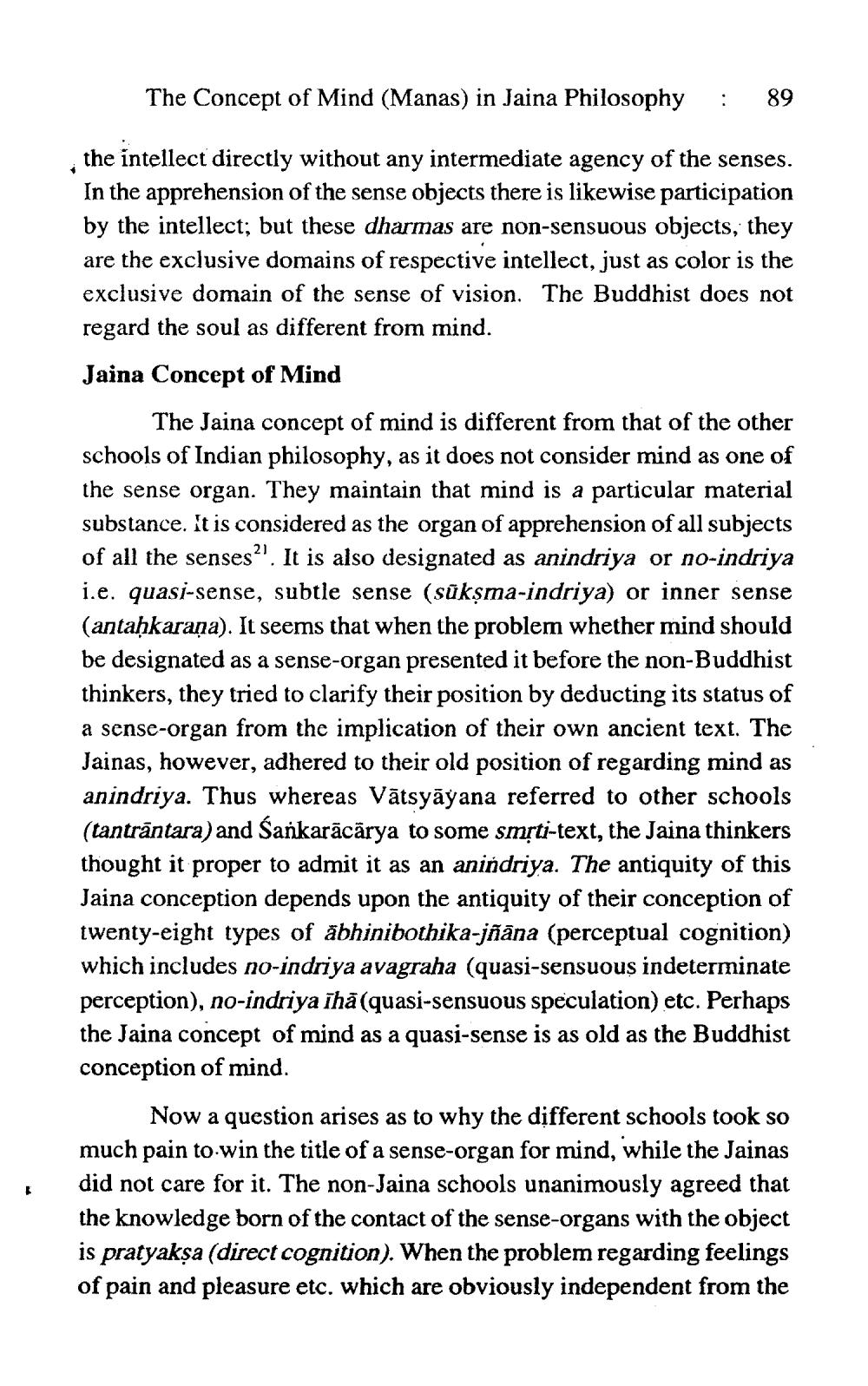________________
The Concept of Mind (Manas) in Jaina Philosophy
:
89
the intellect directly without any intermediate agency of the senses. In the apprehension of the sense objects there is likewise participation by the intellect; but these dharmas are non-sensuous objects, they are the exclusive domains of respective intellect, just as color is the exclusive domain of the sense of vision. The Buddhist does not regard the soul as different from mind. Jaina Concept of Mind
The Jaina concept of mind is different from that of the other schools of Indian philosophy, as it does not consider mind as one of the sense organ. They maintain that mind is a particular material substance. It is considered as the organ of apprehension of all subjects of all the senses?'. It is also designated as anindriya or no-indriya i.e. quasi-sense, subtle sense (sūkşma-indriya) or inner sense (antahkarana). It seems that when the problem whether mind should be designated as a sense-organ presented it before the non-Buddhist thinkers, they tried to clarify their position by deducting its status of a sense-organ from the implication of their own ancient text. The Jainas, however, adhered to their old position of regarding mind as anindriya. Thus whereas Vātsyāyana referred to other schools (tantrântara) and Sankarācārya to some smrti-text, the Jaina thinkers thought it proper to admit it as an anindriya. The antiquity of this Jaina conception depends upon the antiquity of their conception of twenty-eight types of abhinibothika-jñāna (perceptual cognition) which includes no-indriya avagraha (quasi-sensuous indeterminate perception), no-indriya ihā (quasi-sensuous speculation) etc. Perhaps the Jaina concept of mind as a quasi-sense is as old as the Buddhist conception of mind.
Now a question arises as to why the different schools took so much pain to win the title of a sense-organ for mind, while the Jainas did not care for it. The non-Jaina schools unanimously agreed that the knowledge born of the contact of the sense-organs with the object is pratyaksa (direct cognition). When the problem regarding feelings of pain and pleasure etc. which are obviously independent from the




